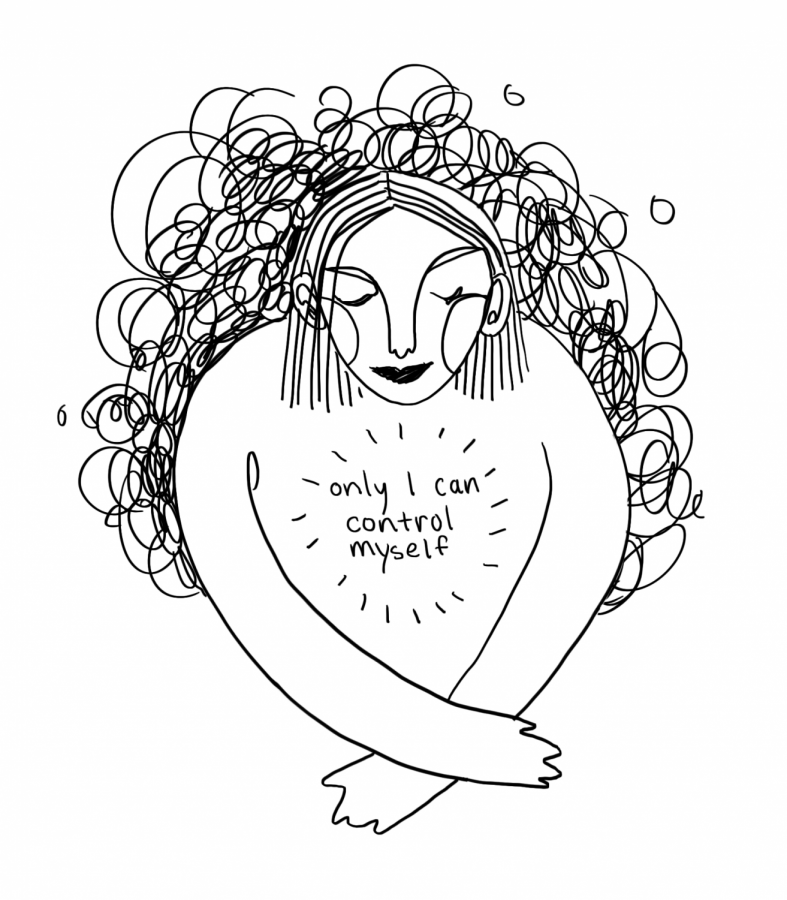Despite a broken home
December 14, 2018
It’s easy to assume that somebody is doing fine from the outside looking in. This, in turn, makes it easier for those who are not completely fine to hide what they’re feeling. In this cycle, everyone feigns nonchalance, but nobody is really happy. This “easy” route, an escape to simplicity, only serves to complicate the emotions and feelings involved. This is an easy route that my own parents tend to take, leaving me in the middle of our familial conflict and strife.
Growing up, I’ve been privy to more arguments than warmth and intimacy between my parents. Years of seeing more friction than unity taught me that distrust is normal, and that pain is a due part of life. I grew accustomed to this toxic environment, and only recently have I begun to question it.
Instead of improving these conditions in a healthy way, my mom went along with it for 20 years and took a personal challenge upon herself to change my dad into the person she wanted him to be, for a lack of doing so would make her “weak”.
Being the oldest in my family, I felt a personal responsibility to fix my parents’ relationship, was burdened with the task of “fixing” my dad by my mom, comforting her, and helping to raise my younger brother. I spent much of my early adolescence shouldering these responsibilities and much of the past year resenting my mom for it.
What I didn’t realize was that I accepted this willfully. I wanted to control a situation that was ultimately bigger than my sphere of control. Sharing this mindset, my mom and I often played a game of denial, insisting to each other that we would not be “weak” and give in to my dad’s resistance to be a functioning part of our family.
There is a book I read recently called “Man’s Search for Meaning,” by Holocaust survivor Victor E. Frankl. In this book, he discusses the idea of personal power, and how even in the most extreme of situations one always has a choice. That choice follows that one always has control over how they respond to any given situation. Taking this idea to heart, I asked my mom, “Why do you keep continuing with this, if you just keep getting hurt?”.
Her answer, simply put—“Because I have to.”
My mom suffers from the plague of responsibility. She feels that, in her position as a mother, it is on her shoulders to mend her relationship with my dad so that my brother and I can have a normal life, and that any effort remotely against that goal is a sign of weakness. Her insistence on this solution leads her to ignore the cloud of toxicity that hovers over our home and arguably harms us more than a split between our parents would.
Let me not distance myself from this situation – this unhealthy entanglement of obligation and responsibility affects a large part of my life too. But I also realize that regardless of my perspective, I ultimately can’t change the cards I’ve been dealt, and it is more valuable to accept that than fight it. As opposed to trying to control my home life, the recent approach that I have begun to take is a more accepting one; instead of fighting my reality I embrace it and focus on my own reactions to external factors. This has shifted the power balance, and as a result, strength, back to me.
I have accepted my situation, but not resentfully. I have accepted it as a neutral fact of life, it is merely something that I have to deal with and navigate around. My mom has not. While my mom and I share a household and the same circumstances, we differ in mindset and satisfaction with our lives. She continues to try to change my dad into the person she wants him to be. She continues to ignore the pending reality of divorce—while I have reached a point where I do not care. I care only about what I know I can control. This includes the love I put out to others. It includes the love I possess for my family and friends, regardless of any of their actions. It includes my responsibility to my own mental health and choices during adverse circumstances.
For my future, the greatest fear that I hold is that I will fall back into this rabbit hole of seeing acceptance as a sign of weakness. I have come to accept my home life—but this is not a sign of me giving up. Rather, accepting this situation and realizing that I have control over only my own actions has shifted the power back to me. Power is a mercurial thing—the idea of control is hard to define because it means many different things to many different people. That being said, the greatest message we can draw from the idea of “power” is universal—that the strength that comes from the authority one has over themselves is invaluable.




